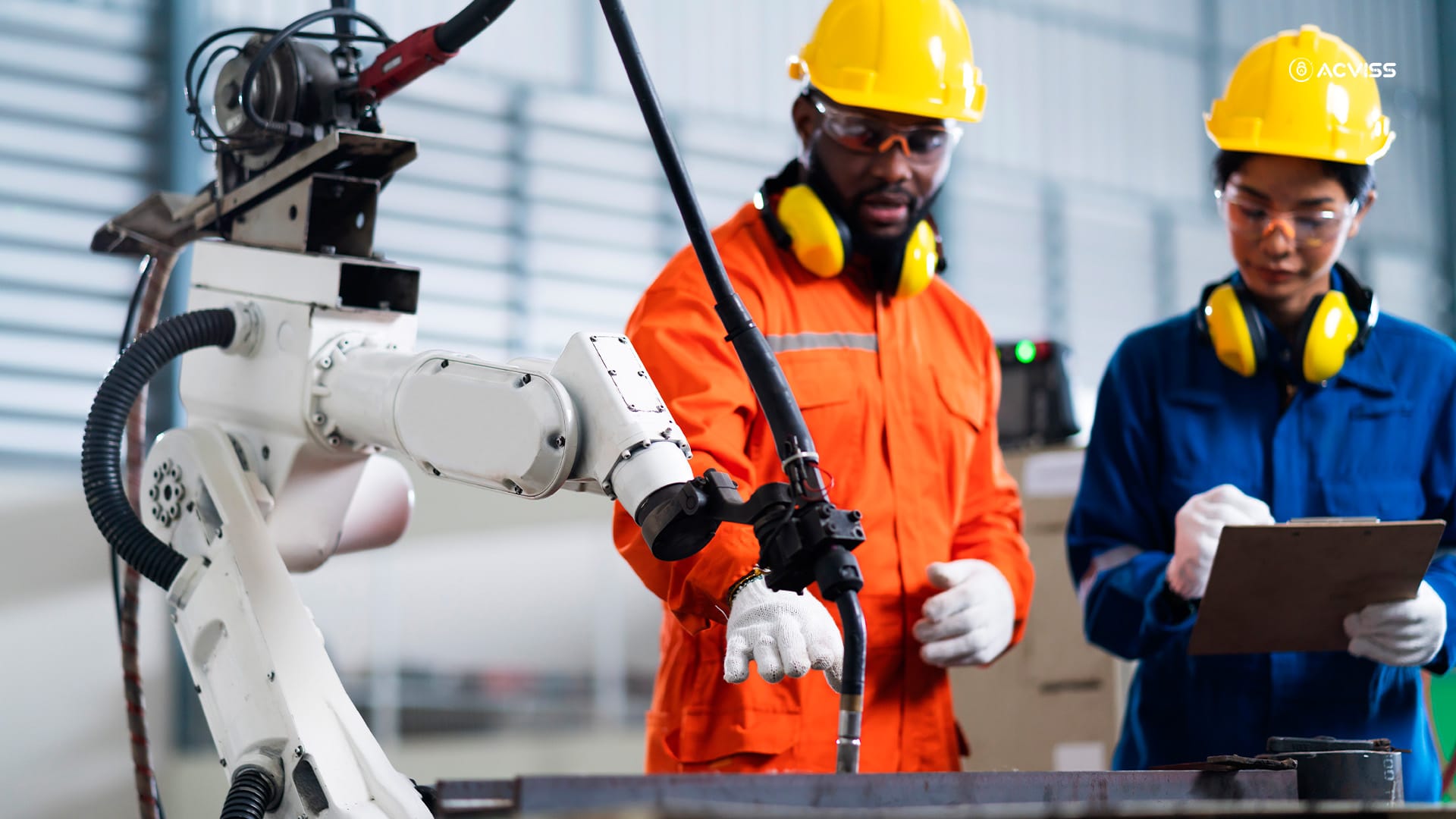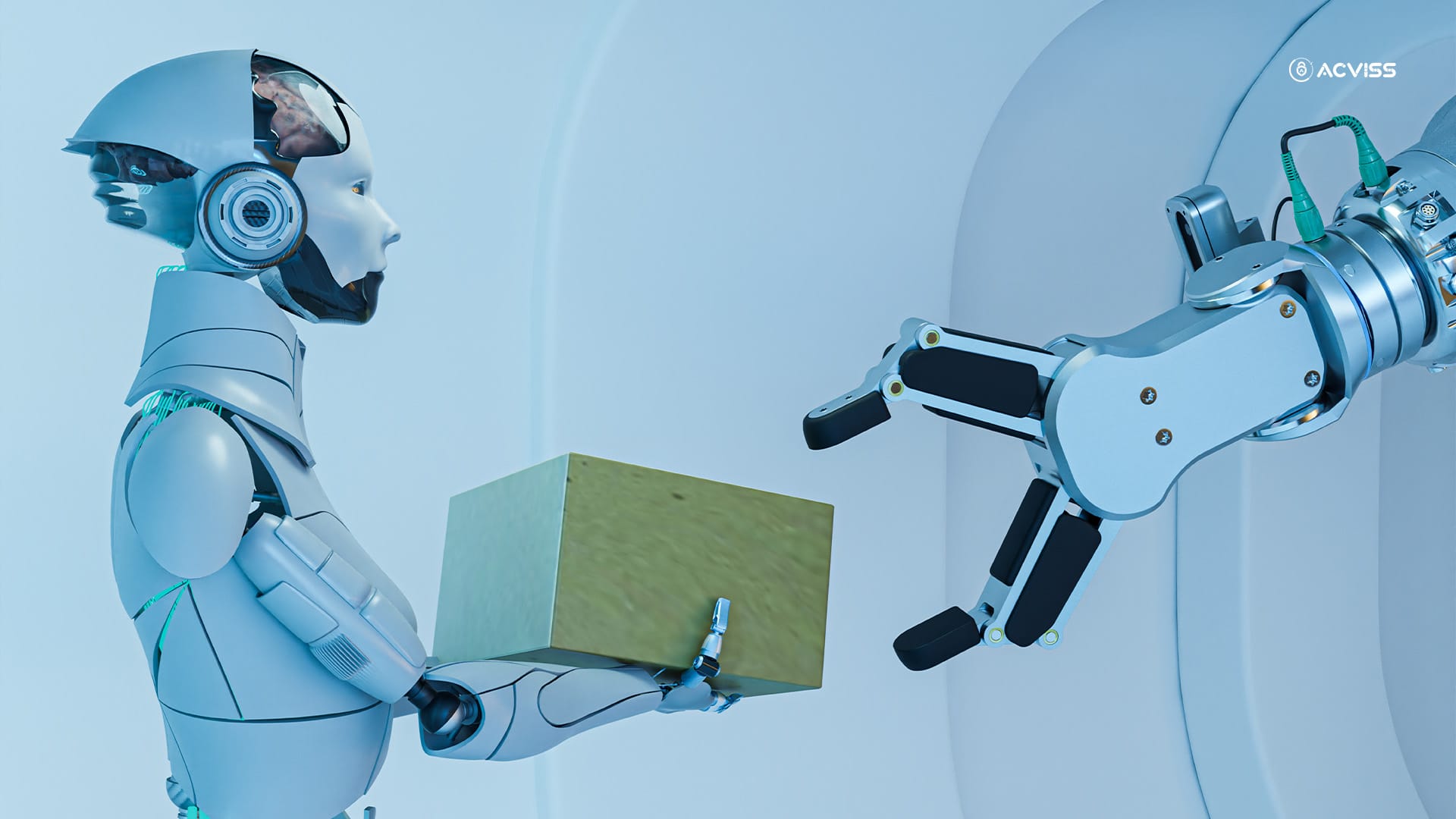How Technology is Transforming the Future of Manufacturing

Technological advancements bring radical transformation in the manufacturing segment. The digital revolution like generative AI, advanced robotics, and warehouse computerisation streamlines the workflow. With data-driven decisions, inventory management has become more sophisticated. Further, automation processes like order fulfilment and inventory tracking speed up operations and enhance accuracy. The use of big data analytics and IoT plays a crucial role in improving service levels and responding to customer demands more effectively. Use the advantages of technology-integrated manufacturing techniques to optimize resource usage for sustainability. Gain real-time visibility throughout the production process, reduce errors, and ensure seamless operations with better forecasting.
Benefits of Using Technology in Manufacturing
The changing nature of technologies has enhanced overall productivity, quality, and efficiency. In today’s manufacturing segment, anti-counterfeiting technology offers the critical benefits of intellectual property protection. Hence, you can safeguard your brand reputation in this competitive marketplace and sustain a loyal pool of customers. Integration of advanced technologies facilitates the development of smart factories to transform the future of manufacturing. Robotic automation and AI play a crucial role in automating quality control and optimizing supply chain management. Combining AI and IoT in manufacturing can ensure preventive maintenance and reduce downtime to gain a competitive edge. Advanced software solutions enable greater flexibility and customization to adapt to today’s fast-paced markets. Reshape the manufacturing landscape by enhancing efficiency and improving safety standards to achieve sustainable impacts.
Thrive in this digital age and make informed decisions to grow without compromising quality!!
Steps to Revolutionize Future Manufacturing

The growing awareness for performing repetitive tasks with high precision and speed results in leveraging advanced technologies. With the adoption of a series of steps, manufacturers can focus on sustainable initiatives to implement changes and foster innovation. Give your skilled workforce the advantages of technology optimization to achieve best practices and productivity. Embracing AI in manufacturing can increase agility, improve collaboration, and manage sustainable changes.
Drive digital transformation in the manufacturing segment and optimize efficiency with the following key technologies –
- Inventory management – The adoption of advanced technologies is reshaping the manufacturing processes with increasing accuracy and responsiveness. By facilitating real-time tracking, inventory management offers enhanced visibility and schedule optimization. Only automated data collection can ensure accurate tracking of inventory quantities and locations.
Use consistent updates and data-driven insights to enable inventory level adjustment efficiently. The integration of IoT in inventory management results in proactive maintenance scheduling and addressing issues before they escalate. At the same time, a technology-integrated system ensures automated reordering to support the just-in-time (JIT) manufacturing principles.
Optimize your inventory management processes and meet the demands of evolving markets to contribute resiliently!!
- Anti-counterfeiting technology – As a vital tool to safeguard the brand’s identity, anti-counterfeiting technologyfosters authenticity and consumer trust. By revolutionizing transparency efforts, it helps manufacturers with security features and anomaly detection. The different measures like holograms, RFID tags, digital signatures, and QR codes combat the potential threats effectively. Also, the use of AI and blockchain can enable manufacturers to take swift actions against counterfeit goods and reduce losses.
It can be stated that leveraging anti-counterfeiting technology is essential to encourage legal protection. Manufacturers should implement these practices as preventive measures to address the issues before they arise. In the e-commerce landscape, online verification systems work as effective measures to strengthen intellectual property rights. Raise your awareness of technology usage to check the authenticity of goods before purchasing them online.
Embrace the right security measures to remain vigilant and proactive to achieve consumer trust and satisfaction!!

- AI in manufacturing – With innovative practices, AI in manufacturing optimizes operations and reshapes the manufacturing segment. By empowering manufacturers with data-driven insights, it helps to identify inefficiencies and bottlenecks. As such, timely intervention is possible to improve the entire process while delivering exceptional value. The use of AI offers the benefits of real-time feedback to allow for quick adjustments and sustainable improvement. Enhance quality control and flag potential risks to reduce the number of defective products. This proactive approach can minimize unplanned downtime and lead to significant cost savings.
With AI algorithms, it is possible to achieve improved processing time and accuracy. Avail the advantages of smooth operations and avoiding disruptions to shift toward a smarter production system. By consistently harnessing the power of AI technologies, resource optimization and product integrity can be maintained. Explore the AI’s potential and create a more agile and responsive manufacturing environment to achieve impeccable performance.
AI in manufacturingis your sustainable strategy to manage your ecological footprint while reducing operational costs!!
- Optimizing inventory with track and trace – However,the integration of AI and track and trace technology can improve data-driven decision-making. The up-to-date information on inventory status helps to prevent stockouts and overstock situations. Further,optimizing inventory with track and tracecan analyze movement patterns and stock levels to improve overall performance. Avail the benefits of streamlined order fulfilment, accurate demand forecasting, and improved quality control to ensure competitive success.
The real-time insights support sustainable manufacturing practices for excellent outcomes. As such, ensure greater operational efficiency by leveraging the track and trace technology. It not only helps in minimizing waste but allows better resource allocation for improving the service levels. Use both IoT and AI to continue the operations without interruptions. The excellence of optimizing inventory with track and trace supports strategic moves for a sustainable future in manufacturing.
Technology for Sustainable Manufacturing Practices

Instead of a traditional manufacturing approach, the technology-driven manufacturing landscape can offer significant improvements. At present, manufacturers are experiencing growing pressure to reduce environmental impact. The integration of advanced technologies can provide effective real-time insights to make informed decisions. The use of AI in manufacturingand big data analytics enables manufacturers to make proactive adjustments. Predictive analytics helps manufacturers to maintain optimal inventory levels while minimizing waste. Also, technologies like robotics and machine learning can reduce human error and minimize waste caused by defective products.
By utilizing technology to minimize complexity, the future manufacturing landscape can enhance sustainability. The integration of anti-counterfeiting technology with scaling innovative solutions can contribute to a more positive endeavour. By understanding the principles of sustainable manufacturing, cross-functional operational efficiency can be achieved. The future of manufacturing lies in integrating automated processes, managing agility in innovation, and driving meaningful changes to fulfil sustainable commitments.
Embrace a technology-driven approach to achieve long-term sustainability goals and ensure a resilient future in manufacturing!!
Bottom-Line
The above discussion clearly emphasizes the need for technology advancements for a sustainable future. By increasingly adopting Industry 4.0 principles, the manufacturing segment can shift toward a long-term sustainability objective. In this regard, a holistic approach is necessary to drive meaningful changes from sourcing to production practices. The use of smart technologies can enable improved decision-making while fostering innovations for remaining competitive in the changing market dynamics. Key to transformation necessitates the convergence of innovation and sustainability that will ultimately redefine the manufacturing sector. Going beyond inventory management, the future of manufacturing depends on AI-powered algorithms and predictive analytics to ensure resilience in the manufacturing process. Finally, the future of manufacturing is intertwined with sustainable initiatives that promote a technology-driven approach cost-effectively.
Use the benefits of our smart technologies to secure your brand and products, Get in touch with us today and gain the headstart in the competition.